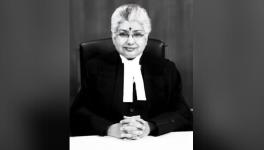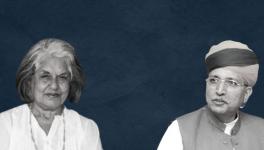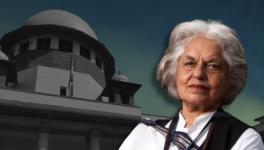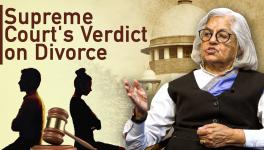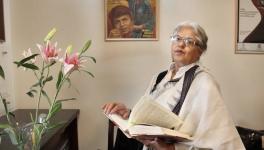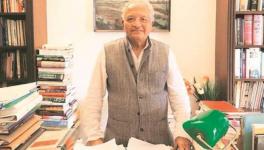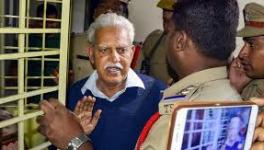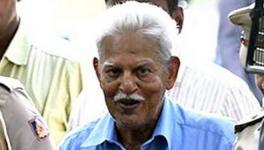Kathua Case: Victim’s Lawyer Describes Challenges Faced in Ensuring Justice
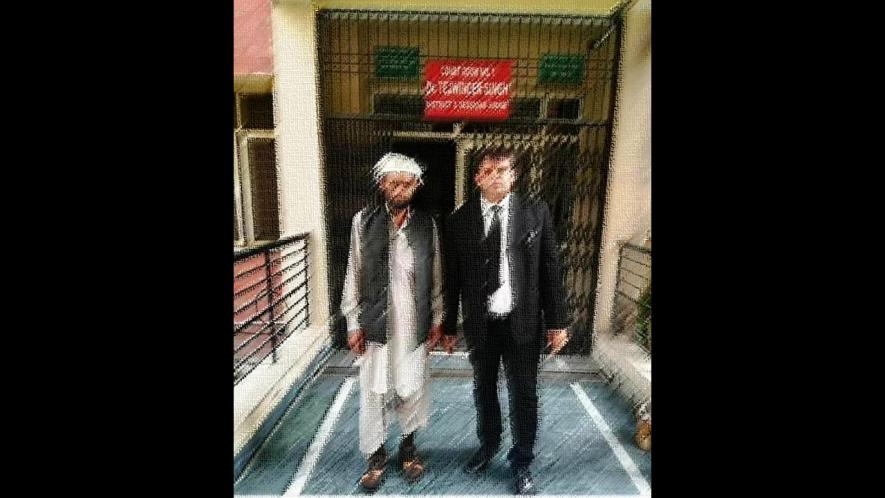
New Delhi: The fight to ensure justice to an eight-year-old girl, who was abducted, sedated, confined, gang-raped and then strangled to death with her own head scarf at Rasana village in Kathua, Jammu and Kashmir in January 2018, was not a one-man show but the collective effort of the investigating agency, state prosecutors, lawyers and thousands others who fought in their own ways, said Advocate Mubeen Farooqui –who fought the case as informant lawyer in a special court in Pathankot.
The District and Sessions Judge, Pathankot, Tejwinder Singh, ruled in his favour and sentenced three main accused to life imprisonment for the rape, torture and murder of the victim and three policemen to five years in prison for destroying evidence. Three main accused in the case – Sanji Ram, his friend Parvesh Kumar and a special police officer Deepak Khajuria – were sentenced to life imprisonment for offences under Section 302 (murder) of the Ranbir Penal Code. They have also been separately sentenced to 25 years imprisonment for the offence of gang rape under Section 376D of the Code.
Sanji Ram was found to be the mastermind of the crime. He is the caretaker of the temple where the victim was initially kept unconscious after her abduction, and the place where the offence took place.
Three police men – Head Constable Tilak Raj, Sub Inspector Anand Dutta and Special Police Officer Surender Verma –were sentenced to five years in prison under Section 201 of the Indian Penal Code (IPC) for destroying the evidence with an aim to sabotage the case.
The trial court acquitted Ram’s son Vishal, the seventh accused in the case, giving him benefit of doubt on the basis of his plea of alibi that he was taking examination at his college in Uttar Pradesh’s Muzzaffarnagar district on the date of offence.
“When the matter was transferred to Pathankot from a court in Jammu on the direction of the Supreme Court, we approached the foster father of the victim expressing our wish to fight the legal battle. He agreed and handed the case to us. The case was extremely tough to handle as there was no direct evidence to prove the guilt of the accused as the crucial evidence was tampered with. We worked on the circumstantial evidence to connect all dots. The credit goes to Superintendent of Police (Crime Branch), Mr Harminder Singh, and Deputy Superintendent of Police (Crime Branch), Mr Bhupendra Singh, who conducted professional investigation into the case. We worked day and night along with special prosecutors of the Punjab government Mr Santosh Singh Batra (senior advocate, Gurdaspur) and Mr Jagdishwar Chopra (district attorney, Pathankot) to ensure harshest possible punishment to the guilty. Our hard labour finally bore fruit and the conviction took place,” the 35-year-old lawyer told Newsclick.
Farooqui said it was because of senior lawyer Indira Jaising and advocate Deepika Singh Rajawat that the case was transferred to Pathankot. “They were the ones who convinced the Supreme Court to transfer the matter from Jammu to Pathankot for a fair and speedy trial. And their role cannot at all be denied. Deepika ma’am had filed direction for filing a challan. While she was representing the victim’s biological father, I appeared on behalf of the main complainant in the case – the victim’s foster father. Therefore, it is not true – as being reported in the media – that she was sacked by the family. She had appeared in the Pathankot court as well at several occasions,” he said.
Asked about the challenges faced in this case, Farooqui said working against a battery of 57 defence counsels. “We faced a group of 57 defence lawyers who were arguing against us. The case itself was high-profile and political pressure was being mounted from different sides. There were consistent efforts to disrupt facts. Witnesses were getting hostile every day. Of the 380 witnesses, we could get 114 deposed in the court. The rest turned hostile. But we were committed to fight for justice. We fought this case on two fronts – inside and outside the court. We had to present facts, witnesses and corroborative evidence to convince the court and simultaneously we had to keep eyes on fake news being circulated and bring it to the notice of the court as there was a complete ban on reporting the day-to-day trial of the case in the media,” he said.
He complained that he was still receiving threats from several people for taking up the case. “I have lodged a complaint in this regard. I personally met the Sangrur Deputy Commissioner urging him to issue me a firearm license, which is needed for my security. But he care about the threat to my life,” said the lawyer who belongs to Malerkotla in Punjab.
Asked how satisfied he was with the punishment given to the accused, the lawyer said he would move the Punjab and Haryana High Court, praying capital punishment for the three masterminds and longer sentence for those who were involved in the destruction of evidence. “First of all, the court did not consider the case as rarest of the rare and, therefore, the convicts were not awarded capital punishment. We will approach the high court, praying to send Sanji Ram, Parvesh Kumar and Deepak Khajuria (who have been sentenced to life imprisonment) to gallows. We will also pray to enhance the punishment given to the three police men (Tilak Raj, Anand Dutta and Surender Verma) who had taken a bribe from Sanji Ram for destroying the crucial evidence. Destroying evidence of a case of heinous crime such as rape and murder makes them part of the conspiracy. It is established that they were in agreement of mind of their fellow culprits. And therefore, they should also be held guilty of being part of the conspiracy and their sentence should be enhanced,” he added.
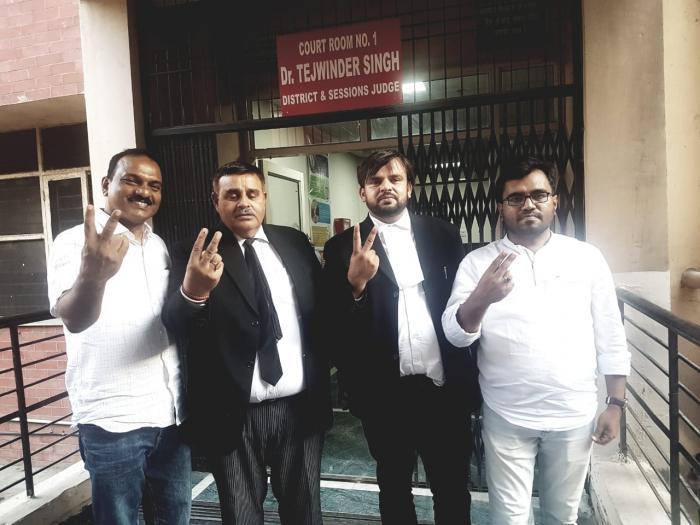
In a statement, the prosecution team, comprising lawyers Bhupinder Singh, Harminder Singh, SS Basra and JK Chopra, too, have said that they would examine the judgement and may go in for appeal against one acquittal.
Sanji’s nephew is also an accused in this case but the matter is pending before the Jammu and Kashmir High Court for determining his plea that he was a minor at the time of incident.
The Case
The minor girl, belonging to the Gujjar-Bakerwal community (a nomadic tribe), was abducted on January 10, 2018 when she had gone to forest in search of one of her horses, which had gone missing from the herd she had taken for grazing. She was held captive in a nearby temple, sedated for four days and gangraped in captivity. She was bludgeoned to death. Her battered body was discovered almost three weeks later.
Investigators said in the charge-sheet that the “juvenile” accused had abducted the girl under the pretext of helping her find her horses. The charge-sheet further said the abduction, rape and killing of the child was part of a plan to scare and remove the minority nomadic community from the area.
The case got polarised after Right wing groups came out in support of the accused, claiming that they were falsely implicated. Two leaders (Chander Prakash Ganga and Chowdhury Lal Singh) of the Bharatiya Janata Party (BJP) – which was an alliance partner of the ruling People’s Democratic Party (PDP) –had even participated in a rally organised by the Hindu Ekta Manch protesting the arrests of accused by waving tricolour.
Few lawyers of the Jammu Bar Association prevented police officials from filing the charge-sheet in the case. The Supreme Court, taking suo-moto cognizance of the obstruction by lawyers and the support enjoyed by the accused in Jammu, transferred the trial of the case to Pathankot in the neighboring state of Punjab. Later, it also ordered that the accused be shifted to a jail in Gurdaspur jail in Punjab from Kathua.
Get the latest reports & analysis with people's perspective on Protests, movements & deep analytical videos, discussions of the current affairs in your Telegram app. Subscribe to NewsClick's Telegram channel & get Real-Time updates on stories, as they get published on our website.









